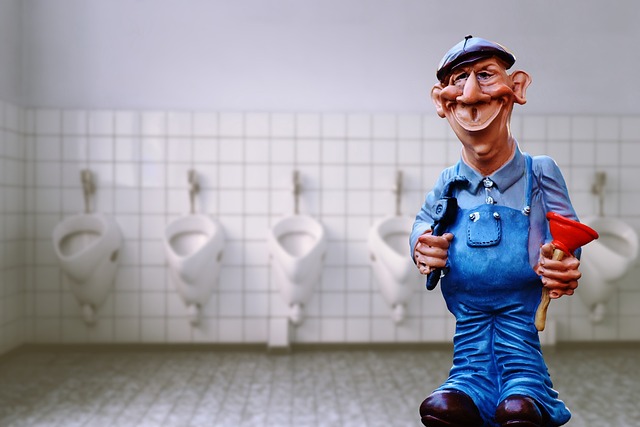DIY plumbing can save costs but may lead to incomplete repairs, further damage, or safety hazards due to lack of specialized tools and knowledge. While appealing for control and cost-saving, complex issues require professional plumbers who use advanced tools and expertise to diagnose hidden problems and offer lasting solutions, adhering to safety standards and building codes. Comparing DIY vs. professional plumbing, consider task complexity, severity of issues, and long-term costs for informed decision-making.
“Uncover the truth beyond YouTube’s DIY plumbing tutorials. While do-it-yourself (DIY) repairs seem appealing, navigating complex plumbing systems can be risky. This article explores the fine line between empowering homeowners and potentially hazardous DIY plumbing fixes. We delve into the pros and cons, offering insights on when to trust a professional plumber. Learn to recognize red flags and make informed decisions, ensuring your plumbing stays in top shape without unnecessary risks. Discover the DIY vs. professional plumbing debate and stay safe.”
- DIY Plumbing Fixes: Empowering Homeowners or Potentially Hazardous?
- The Pros and Cons of Going the DIY Route for Plumbing Repairs
- When to Trust a Professional Plumber: Uncovering Red Flags
DIY Plumbing Fixes: Empowering Homeowners or Potentially Hazardous?

DIY plumbing fixes have become increasingly popular, with many homeowners taking on these tasks to save money and gain a sense of accomplishment. While there are numerous online resources and tutorials available, it’s essential to consider the potential risks associated with DIY projects. Unlike professional plumbers, who possess specialized training and experience, untrained individuals may struggle to identify complex issues accurately. Misdiagnosis can lead to further damage or even pose safety hazards.
The DIY approach might be suitable for minor, straightforward repairs, but when it comes to intricate plumbing systems, it’s hard to beat the expertise of professionals. They have the tools and knowledge to navigate complex layouts, diagnose hidden problems, and provide long-lasting solutions. Comparing DIY vs. professional plumbing, it’s clear that while DIY can empower homeowners, it may not always be the safest or most effective choice for all plumbing issues.
The Pros and Cons of Going the DIY Route for Plumbing Repairs

Going the DIY route for plumbing repairs can be tempting, especially with the abundance of online tutorials and how-to videos. Many people opt for do-it-yourself (DIY) solutions to save costs and gain a sense of accomplishment. The internet offers step-by-step guides for various plumbing fixes, making complex tasks seem manageable. However, while DIY plumbing can be appealing, it’s not without its drawbacks.
On the pros side, DIY plumbing allows you to take control of your repairs, potentially saving money by avoiding professional fees. It empowers homeowners to understand their plumbing systems better and may even foster a deeper connection with your home’s inner workings. Moreover, for simple, straightforward issues, DIY solutions can be effective and efficient, providing quick fixes without the wait time associated with professional services. However, the cons cannot be overlooked. Complex plumbing problems often require specialized tools and knowledge that average DIYers might not possess, leading to potential hazards or incomplete repairs. Professional plumbers have the expertise and experience to handle intricate issues, ensuring long-lasting solutions. Additionally, some DIY mistakes can cause further damage, resulting in more costly repairs down the line.
When to Trust a Professional Plumber: Uncovering Red Flags

While many turn to DIY plumbing fixes to save costs, there are certain situations where trusting a professional plumber is paramount. Red flags that indicate it’s time to call in an expert include severe or complex issues, like burst pipes, extensive leaks, or mysterious water damage. Attempting these repairs yourself can lead to further complications and more significant damage, resulting in costly repairs.
Professional plumbers possess the specialized tools and knowledge needed for efficient problem-solving. They can identify hidden leaks or structural problems that might go unnoticed by amateurs. Moreover, licensed plumbers adhere to safety standards and building codes, ensuring your home’s plumbing system is not only functional but also safe.
While DIY plumbing fixes can seem like an appealing way to save money, it’s crucial to weigh the potential risks against the benefits. While some simple tasks may be suitable for homeowners, many plumbing issues require specialized knowledge and tools that only a licensed professional can provide. Understanding when to trust a pro instead of attempting DIY repairs is key to maintaining a safe and efficient plumbing system in your home. When faced with complex problems or red flags like unusual noises, persistent leaks, or low water pressure, it’s best to call in a certified plumber to ensure the job is done right the first time.
